Is Magnesium the Answer to Our Oily Skin Woes? Here Are the Facts
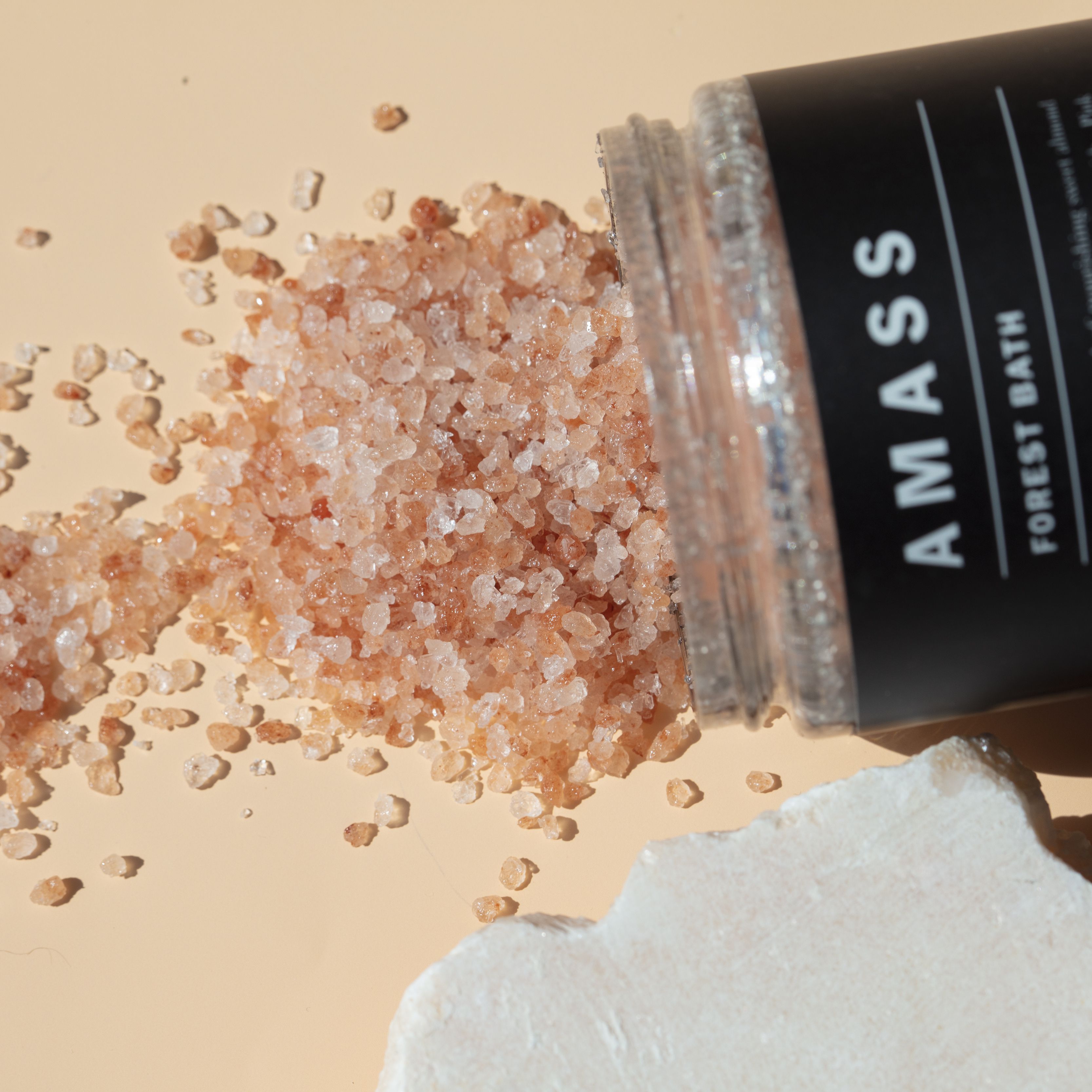
You’ve likely heard about the merits of taking magnesium orally: It helps boost your mood, improves muscle function, and can lower blood pressure. But what about using it topically on your skin? As it turns out, magnesium is a calming agent, potentially making it a great candidate for treating rosacea, acne, eczema, and minor skin irritations. “Magnesium is necessary for muscle contractions, as well as for the function of nerves, some enzymes and for production of proteins and ATP, a cellular source of energy,” says board-certified dermatologist Hadley King, MD. “In the skin, it plays a role in hydration and barrier repair, as well as in skin cell regeneration and shedding.”
To learn more about the skin-soothing properties of magnesium, we turned to King; Ebru Karpuzoglu, MSc, Ph.D., immunologist and founder of health-conscious skincare line AveSeena; cosmetic chemist Marisa Plescia of clean beauty e-tailer NakedPoppy; and New York dermatologist Joshua Zeichner, MD, of Zeichner Dermatology.
Magnesium
Type of ingredient: Mineral
Main benefits: When used in skincare, magnesium may reduce acne, calm sensitive skin and rosacea, and improve the skin’s overall appearance.
Who should use it: In general, all skin types can benefit from magnesium usage. However, those with oily, acne-prone skin will most likely benefit the most.
How often can you use it: Topically, magnesium products can be used daily, preferably at night. If ingested, be careful not to exceed 350mg daily.
Works well with: Vitamin C
Don’t use with: Magnesium absorption-inhibitors, such as high doses of zinc and phosphates. Stress can also cause a magnesium deficiency.
What Is Magnesium?
Magnesium is an absorbent mineral that is crucial to the body’s overall health. Naturally available in many foods, magnesium can be ingested or used topically. It can be found in the form of supplemental capsules, bath salts, oils, and over-the-counter medications—like antacids and laxatives. This potent mineral is a crucial factor in many bodily functions, including structural bone development, muscle and nerve function, energy production, and the synthesis of DNA/RNA—but that’s only naming a few.
“The oral consumption of electrolytes (like magnesium) is really the critical factor for body function, including the skin,” notes King. “Electrolytes are obtained through proper diet and hydration and they circulate through the blood and other body fluids to perform necessary functions throughout all of the cells in our bodies.” In short, magnesium is essential to our overall health. Responsible for hundreds of biochemical reactions within the body, this is definitely a powerful, jack-of-all-trades ingredient. But it’s important to note that it has to work a little harder to have similar impacts on the skin. “Topically-applied electrolytes do not easily pass through cellular membranes of the skin,” says King.
Benefits of Magnesium for Skin
- Reduces sun damage: Magnesium can be a huge help when it comes to hyperpigmentation and sun damage. “In a small human study, topical treatment with magnesium chloride affected the inflammatory response in the skin post-UVB radiation,” notes King.
- Assists with DNA repair and cell replication: Magnesium is necessary for the enzymes that regulate DNA replication and repair. “Magnesium is an important co-factor needed for cells to generate energy, in the heart, muscle, bone, and soft tissue,” says Zeichner. Without it, the skin is subject to a host of harmful free radical damage and inflammation.
- Treats dry skin: Because it is necessary for the skin to maintain a healthy barrier, magnesium “has been shown to be deficient in dry, damaged skin,” says Zeichner. More of it, in that case, may mean more moisture.
- Calms sensitive skin and rosacea: Magnesium is also efficient at soothing redness and inflammation—which is why it’s often used in formulations for the treatment of acne and rosacea.
- Improves the skin’s overall appearance: In some forms, magnesium may enhance the appearance of skin by regulating its sebum production.
- Controls odor: When used topically, it’s claimed that magnesium can help to facilitate gentle detoxification and control odor, which is why it’s an ingredient in many natural deodorants.
- Enhances skin barrier function: “There is evidence that suggests that the proper combination of calcium and magnesium enhances barrier repair,” says King.
Side Effects of Magnesium
A magnesium deficiency can cause several health problems and skin-related issues: “Lack of magnesium in our body can make us feel weaker and age faster due to impairment of protein synthesis and possible initiation of inflammatory responses,” explains Karpuzoglu. She adds, “Magnesium deficiency results in an uneven skin tone, a decrease in elasticity, and a loss of moisture, which creates the perfect environment for dryness, inflammation, and aging free radical damage.” Magnesium has a laxative effect when excessive amounts are ingested. You should not exceed the daily recommended dosage. Make sure to consult your physician before adding any kind of supplement to your daily regime.
How to Use It
Magnesium can be used in a multitude of ways since it’s available in various forms. Topically, it’s safe for everyday use on a variety of skin types. “[Magnesium] generally is stable and can be mixed with other products without causing skin irritation,” says Zeichner. “It can be used morning or night, depending on your skin needs.”
It’s most often found in three different formulations: magnesium hydroxide, magnesium PCA, and magnesium carbonate. For clarification, magnesium hydroxide is found in Milk of Magnesia, which is an antacid and laxative, magnesium PCA is a humectant, and magnesium carbonate is a mineral salt that is often used for balancing pH within the skin.
The Best Products With Magnesium

Ren Clean Skincare
Atlantic Kelp and Magnesium Anti-Fatigue Body Wash
$28
Ren’s kelp-infused body wash works deep within the skin to clean it from debris and toxins, but also provides a soft-to-the-touch texture. Plescia recommends it for its ease of use and high quality ingredients list.
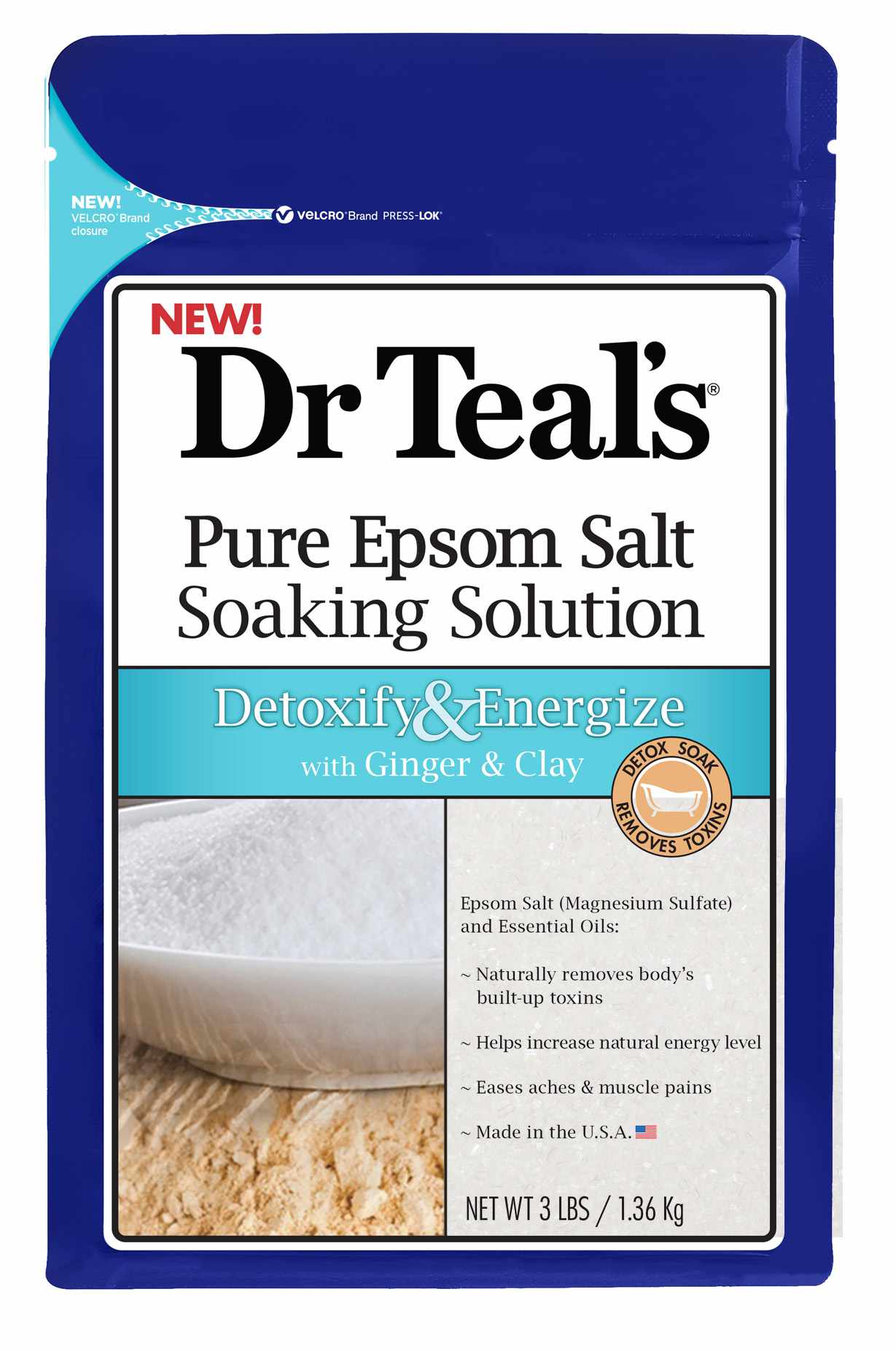
Dr. Teal’s
Pure Epsom Salt Soaking Solution
$5
You can also find magnesium in skincare via Epsom salts, otherwise known as magnesium sulfate. “Epsom salt is a very popular bathtime remedy that many of its beneficial properties are attributed to the magnesium, which dissolves the water from the bath and can be absorbed through the skin,” says Plescia. “Epsom salts have been used to ease muscle soreness, stress, and inflammation.”
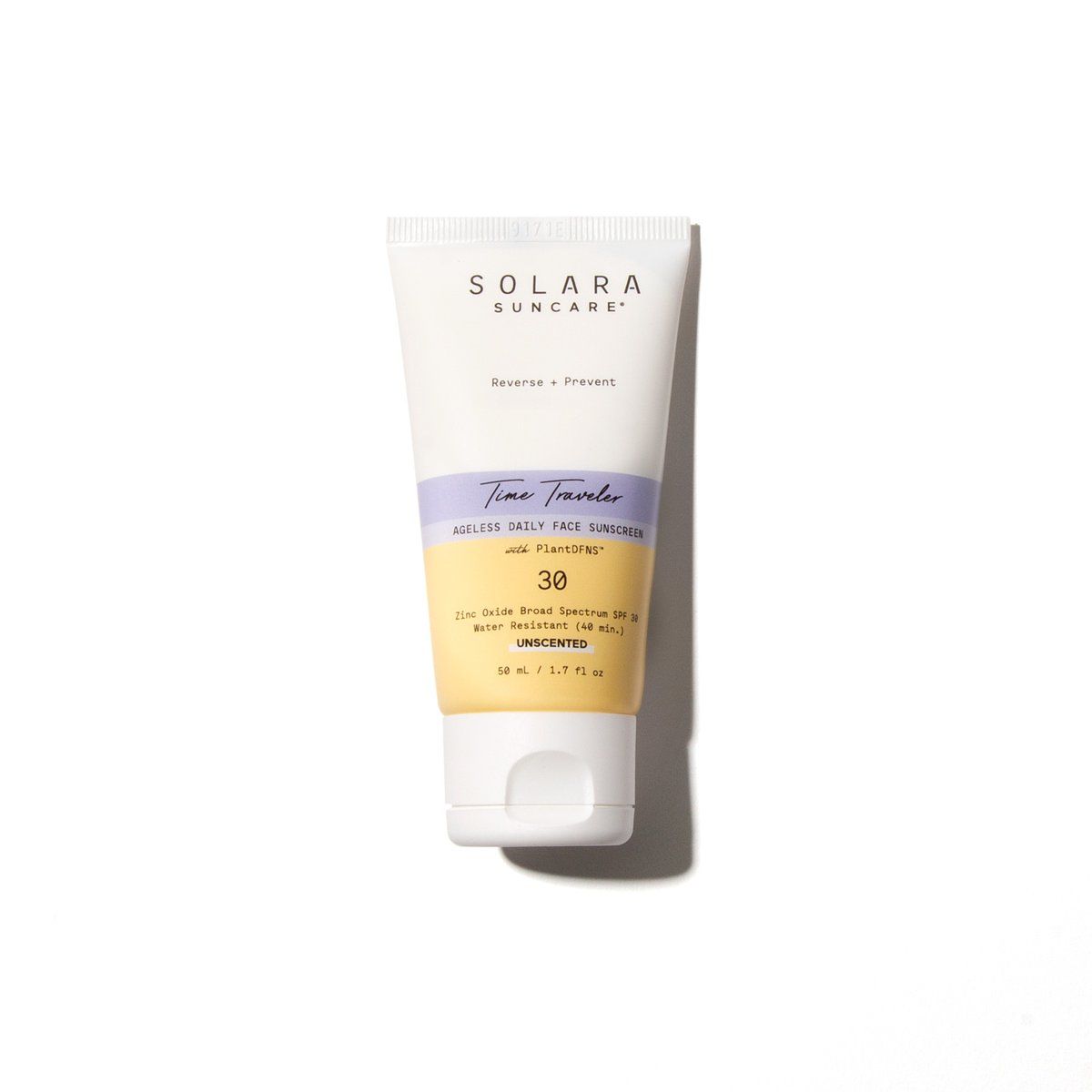
Solara
Time Traveler Ageless Daily Face Sunscreen
$42
Magnesium salts can be found in Solara’s Time Traveler Ageless Daily Sunscreen, a product Zeichner recommends for its ability to protect skin from even the harshest elements. Protecting skin from the sun, of course, also helps prevent the formation of wrinkles and hyperpigmentation.
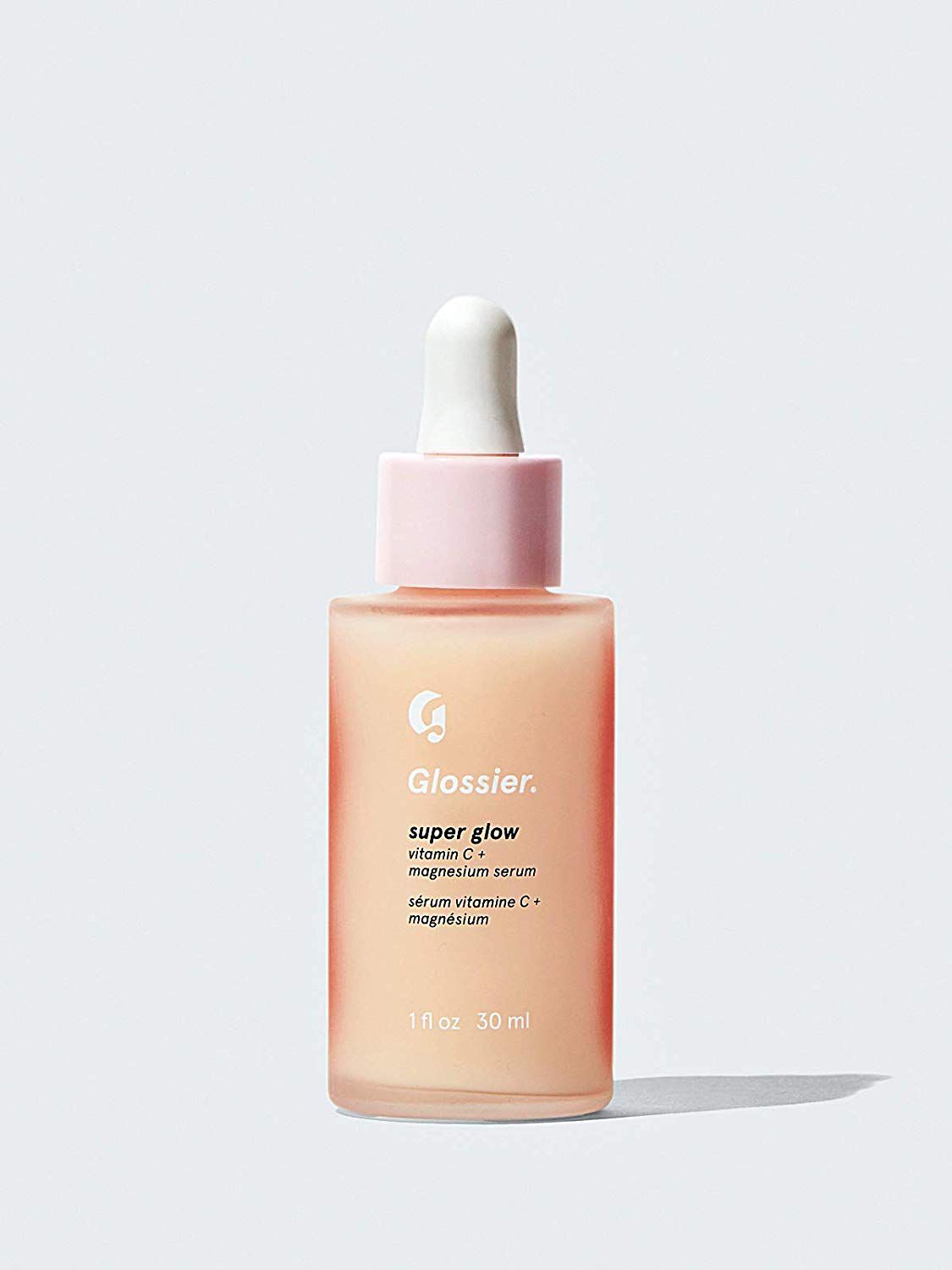
Glossier
Super Glow Vitamin C + Magnesium Serum
$28
Formulated with magnesium PCA, each drop of this powerhouse serum is packed with vitamin C and magnesium meant to energize and even out skin tone.
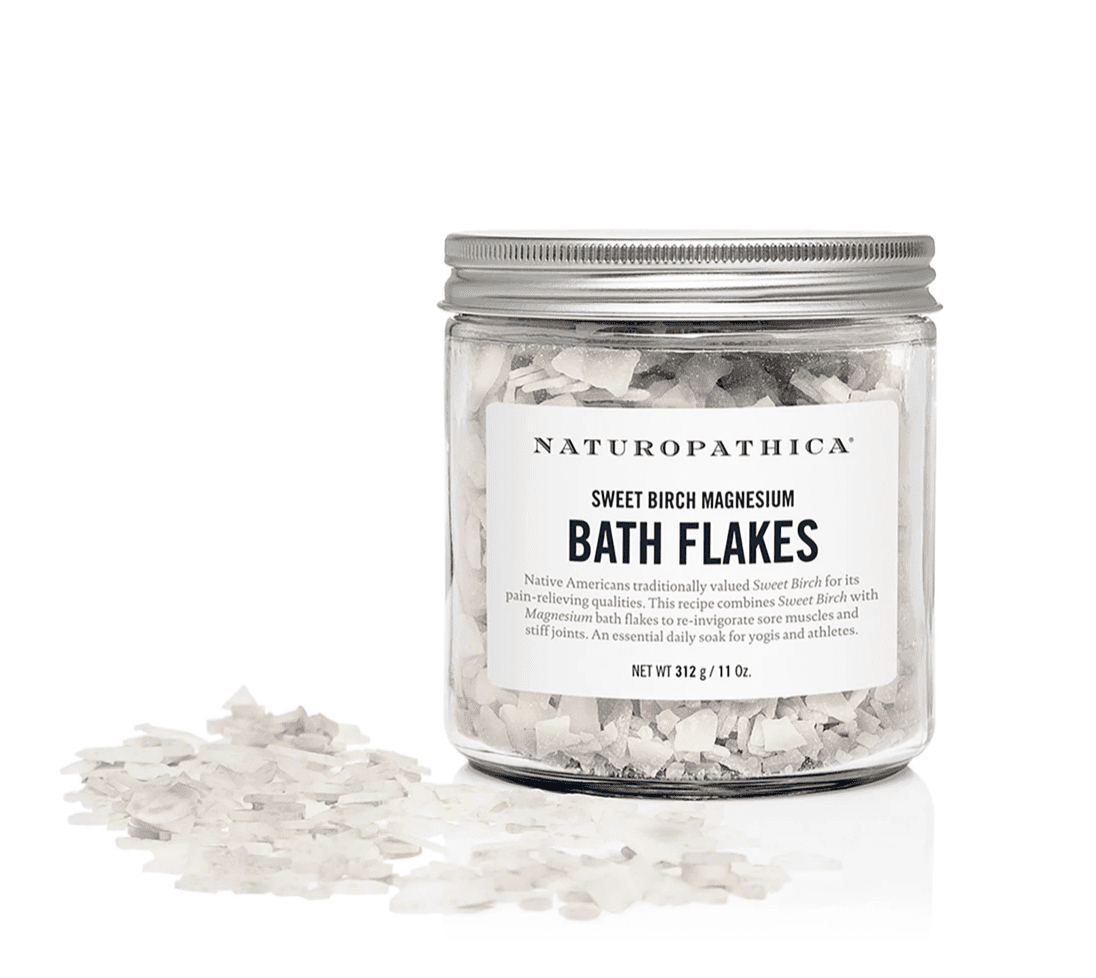
Naturopathica
Sweet Birch Magnesium Bath Flakes
$42
Runners and yogis will especially reap the benefits of this bath product, which combines the healing benefits of magnesium with sweet birch. It re-invigorates sore and stiff muscles and can be used daily.
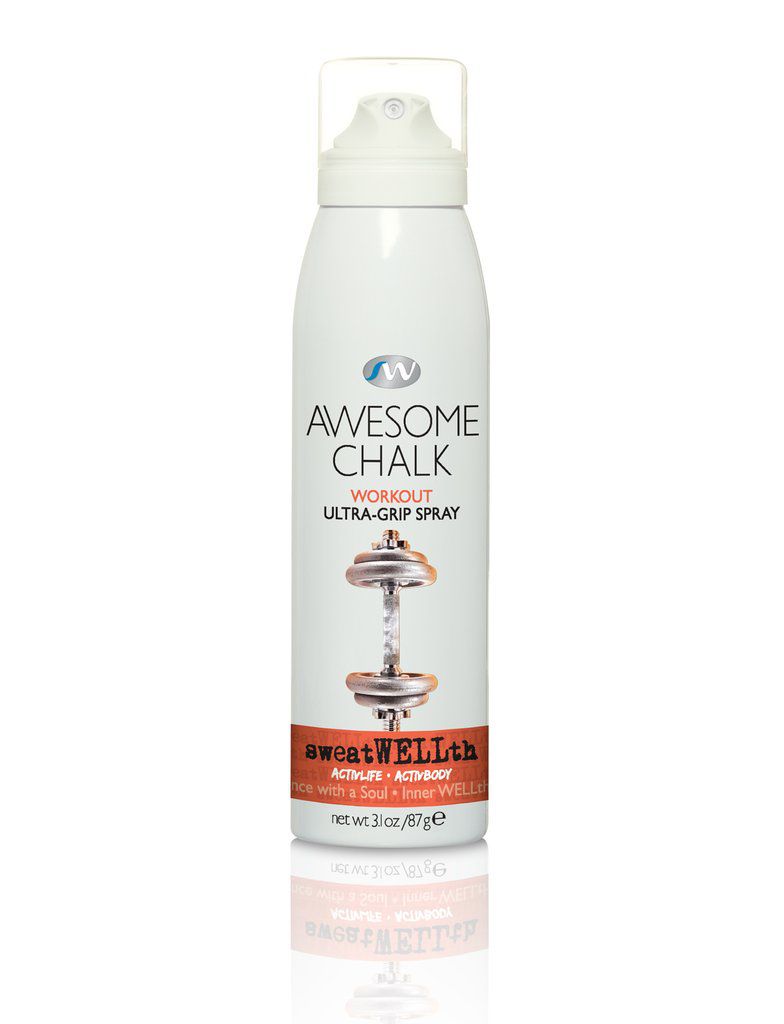
sweatWELLth
Awesome Chalk
$18
While not your typical beauty product, the Awesome Chalk Workout Ultra Grip Spray is formulated with magnesium carbonate, which is excellent for absorbing excess moisture and promises to balance the skin’s PH.
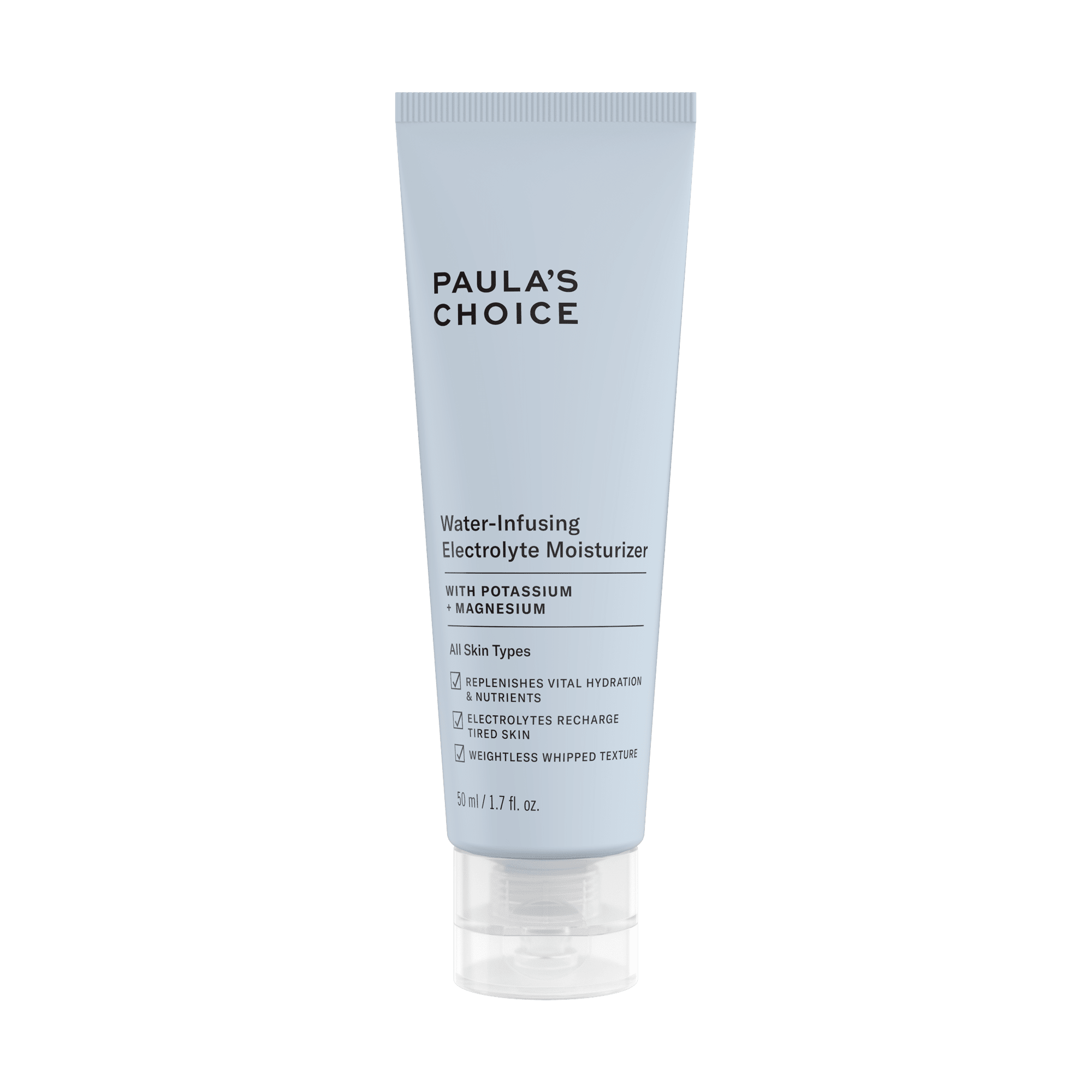
Paula’s Choice
Water-Infusing Electrolyte Moisturizer
$30
Meant to serve as the final step in a nightly skincare routine, this moisturizer combines minerals—calcium, magnesium, and potassium—to energize skin and nutrients to hydrate. It’s gentle enough for sensitive skin, too, so it can be used every day.
Up Next: 8 Reasons Magnesium Is Such a Miracle Mineral.
Article Sources
Byrdie takes every opportunity to use high-quality sources, including peer-reviewed studies, to support the facts within our articles. Read our editorial guidelines to learn more about how we keep our content accurate, reliable and trustworthy.
-
Schwalfenberg GK, Genuis SJ. The importance of magnesium in clinical healthcare. Scientifica (Cairo). 2017;2017:4179326. doi:10.1155/2017/4179326
-
Pickering G, Mazur A, Trousselard M, et al. Magnesium status and stress: the vicious circle concept revisited. Nutrients. 2020;12(12):3672. doi:10.3390/nu12123672
-
Nourbakhsh SM, Rouhi-Boroujeni H, Kheiri M, et al. Effect of topical application of the cream containing magnesium 2% on treatment of diaper dermatitis and diaper rash in children a clinical trial study. J Clin Diagn Res. 2016;10(1):WC04-WC6. doi:10.7860/JCDR/2016/14997.7143
-
Lee WJ, Kim SL, Lee KC, et al. Effects of magnesium ascorbyl phosphate on the expression of inflammatory biomarkers after treatment of cultured sebocytes with propionibacterium acnes or ultraviolet B radiation. Ann Dermatol. 2016;28(1):129-132. doi:10.5021/ad.2016.28.1.129








